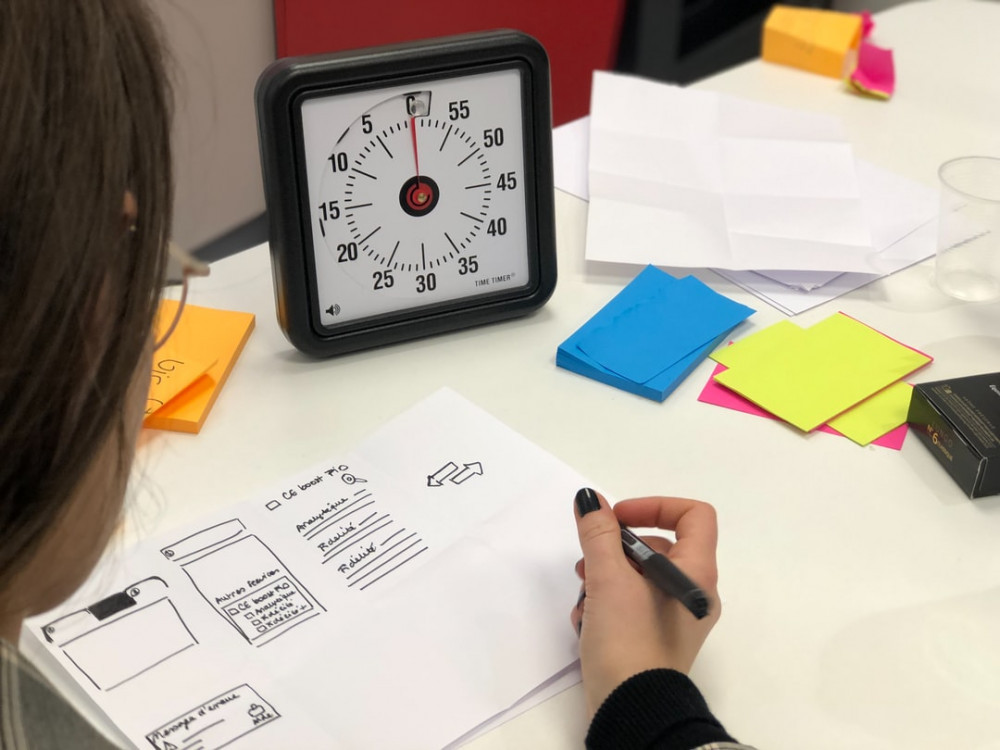A month ago, I clicked on the link to the following post: Stanford psychology expert: This is the No. 1 skill parents need to teach their kids – but most don’t.
The title got me. What was this special skill? Was I, like most parents, not teaching it to my children?
Usually posts like this let me down. After all, I’ve read hundreds of parenting articles over the years. I doubted there would be anything new in this one. But there was.
The article was written by Nir Eyal and contained insights from his latest book. He writes that “in the future, there will be two types of people in the world. Those who let their attention and lives be controlled and coerced by others, and those who proudly call themselves “indistractable”.
Wow! Being indistractable would be a good skill to teach my two sons. In fact, it’d be a good skill to teach myself. How many times had I started to write a blog post or edit my book only to be seduced by a click-bait title promising salacious celebrity gossip. Thirty minutes later, after clicking through a series of slow-loading pages full of adverts, I’d finally arrive at the promised conclusion only to find it a total letdown. Diagnosis = Distractable.
If I really wanted to grow as a writer I needed to become indistractable. But how?
Traction vs. Distraction
“Traction draws you toward what you want in life, while distraction pulls you away.” – Nir Eyal
Famed for writing Hooked: How to Build Habit-Forming Products, Nir Eyal turned his attention to examining our response to habit-forming products when he found himself distracted by his Smartphone one day during daddy daughter time. When he finished whatever he was doing on his phone, his daughter was gone. She’d given up on him and went off to play by herself.
I’m sure we can all relate. It’s fine to watch Netflix or check social media, but only when you plan to do it. If it’s pulling you away from your goals then it’s a distraction.
There is so much in the book, I encourage you to read it. Here, I outline how I’ve used some of the ideas to make me a more focused writer. I’ve done it by noticing my internal triggers, limiting the external triggers, better planning my time, and using precommitments and pacts to stick to my writing goals.
So, what drives us to distraction? Is technology to blame?
Internal Triggers
“Unless we deal with the root causes of our distraction, we’ll continue to find ways to distract ourselves.” – Nir Eyal
It’s easy to blame video game creators and social media marketing teams for our behavior, but the truth is not so simple. When I was in college and set aside time to study for final exams, I’d often find myself reading escapist fiction or cleaning the entire house. Social media didn’t exist then, but I was still easily distracted from my intended actions. Why? Because studying for exams was hard and I was procrastinating.
Even if we didn’t have notifications, pings, and dings reminding us to check our Smartphones, we’d still turn to distractions. Humans want to avoid pain.
“As with the case with all human behavior, distraction is just another way our brains attempt to deal with pain.” For me, reading The Fellowship of the Rings for the fifth time was a way to avoid the pain of studying.
If we know our natural tendency is to avoid pain then we must deal with the feelings causing our distractions before we can build traction.
Here are four things Eyal suggests we do when we discover the discomfort that precedes distraction.
- Notice feeling anxious, having a craving, or feeling restless
- Write down the trigger
- Explore your sensations
- Beware of liminal moments – transition times, pauses, the space in between
The goal of these four actions is to disarm the trigger.
Now, when I find myself reaching for an open tab on my computer instead of writing I stop and think about why I’m doing it. Have I reached a difficult concept to articulate in my post? Do I feel restless? Is it time to get up and take a break? Did I not do enough research or outline well enough to continue with my writing?
When I identify the issue, I write down my trigger and think about the best way to deal with it. If I haven’t done enough research, I may take a break and come back to focus exclusively on the research. If I’m experiencing writer’s block, I try to take a walk and let my mind wander. Ideas are more likely to come to me on my walk when I’m not forcing them. If I’m getting bored, I may get up to get a drink of water. If I need to return to work, I try to tap back into my natural curiosity about my writing topic.
If we take a moment to notice our internal triggers, we can be ready for them when they come. If we plan our responses to these triggers then, when they come, we can take a short drink break instead of opening our Facebook app and spending hours pouring over our newsfeed.
But what about the external triggers like the pings on my phone or open tabs on my computer?
External Triggers
“External triggers prompt you to action with cues in your environment.”- Nir Eyal
When I want to get deep work done, I remove as many external triggers as I can before I begin.
Limit interruptions
I purposely get up an hour before my children to do my writing. As much as I love my children, I find it really hard to focus for any length of time when they are around. They can’t wait to tell me about their latest breakthrough in Minecraft or their plan for trading Pokemon cards the next time they see their friends.
Who or what interrupts you when you’re trying to work? Is it your spouse, a pet, colleagues or children? Ask yourself how you can limit interruptions when you’re trying to focus on a task. Make a big sign to stick on your door or your computer notifying others of your focused time.
Turn off technology (or at least temporarily block distracting notifications)
Every night I set my phone on airplane mode an hour before I go to bed. I leave it on airplane mode until I finish my morning writing session. This way, I won’t be tempted to check a few apps before I start working. I leave my phone in the kitchen so I’m not tempted to look at it in bed. Out of sight, out of mind, right?
If you need to have your phone at your side, there are many apps you can use to mute it temporarily. Nir Eyal mentions the apps Freedom, an app designed to block distracting websites on computers and mobile phones (research) and Forest, an app with a timer to keep you from switching tasks on your phone. Flip the script and use technology to help you block out distractions.
Separate Writing Tasks
I’ve started separating my writing tasks into different blocks of time. When I’m writing, I don’t allow myself to research. Once I start researching, it stops the flow of my writing. It’s like chucking rocks into a stream and blocking the flow of water. It’s also too easy to go from one fascinating article to the next until I’m completely off topic. At that point, I’m unmotivated to continue because I’ve lost momentum.
Now, if I need to research, I block off a period of time for research only. It’s much easier to focus on my small research goal and not veer off track. When I’m writing, I only allow myself to write. If I have to look up something, I leave a placeholder and return to it later.
I now take brainstorming walks or bring my journal to bed to outline and organize my ideas. I keep my computer and phone off when I do this so I’m not tempted by the latest trending Twitter topics.
If you want to be a focused writer, limit interruptions, turn off (or block) tech reminders, and separate your writing tasks.
Reduce Temptation With Timeboxing
“Only by setting aside specific time in our schedules for traction (the actions that draw us toward what we want in life) can we turn our backs on distraction.”- Nir Eyal
Timeboxing is essentially deciding what you want to do and when you want to do it.
When I want to use timeboxing I take my small daily writing goal and decide when and where to implement it. I then protect that block of time at all costs.
It’s important to make time for yourself, your relationships, work, projects, service, relaxing, and anything else you want to include in your life. If you don’t schedule time for them, they won’t happen. It’s too easy to let work take over or neglect your health if you don’t have a block of time set aside for the activity.
It’s tempting to try to fit too much in your day. This is always my problem. Try to set small goals instead and experience the benefits of achieving them. I’ve written more about this here:
Every week, tweak your schedule to make it more effective. I’ve recently realized I need to block time to do those unexpected tasks that crop up each day.
Be sure to leave time for rest and relaxation, too.
It’s important to plan your day because “you can’t call something a distraction unless you know what it’s distracting your from.”
Precommitments and Pacts
Here are two strategies to help you stick to your goals:
1. Make a precommitment
A precommitment is a commitment made in advance.
“Precommitments are powerful because they cement our intentions when we’re clearheaded and make us less likely to act against our best interests later.”- Nir Eyal
When I made the precommitment to wake up and hour before my children and write, I set up my work area the night before so it was ready for me when I rolled out of bed. I also put my alarm across the room so I’d have to get up and turn it off. Once I was up it was easier to keep walking to the kitchen where my journal and computer were waiting. I made the decision to wake up early the night before and created the environment to make it as doable as possible.
2. Make pacts with peers
There are several types of pacts you can make to keep you focused.
Accountability partners
Find someone to check in with daily or weekly to make sure you’re achieving your goals. It can be a short text, a phone call, or even a weekly coffee with a friend to go over your progress. If you know you have to report to someone else the additional social pressure goes a long way to motivating you to do what you say you’ll do.
When I was teaching, I used to meet a friend at the gym three days a week after school. If I wasn’t meeting her there, it would have been too easy to decide I was tired and hungry and to head home. Because I knew my friend was counting on me to be there, I always showed up. Once I was there, it was easy and fun to exercise. Having an accountability partner helped to keep me on track.
You can make a digital pact to turn off your phone and computer when you’re writing or use distraction blocking apps.
You can make an effort pact with friends to meet together online to work at the same time. One of the writing groups I’m in offers an online writing saloon, where members can login to all work at the same time on Zoom and hold each other accountable. It’s a quiet working session, but when you see others working hard, it motivates you to get your work done, too.
You can make a financial pact and put money on the line, either by giving money to a friend or a good cause if you get distracted and fail to do what you set out to do.
For a deeper dive into the psychology behind becoming indistractable and a more thorough explanation of precommitments and pacts, check out Nir Eyal’s book, Indistractable: How to Control Your Attention and Choose Your Life.
Conclusion
Nir Eyal refers to being indistractable as a superpower. After reading his book I’ve started thinking about myself as indistractable and teaching my children about this concept as well. Instead of the ‘Invincibles’, we are the ‘Indistractables’. I’m already picturing red superhero costumes for Halloween with giant ‘I’s’ emblazoned across our chests (I’m sure my sons won’t go along with it).
If you want to be a writer, it’s time to join the Indistractable superhero team and finally finish your projects!
The Stoic philosopher Seneca made an astute observation:
“People are frugal in guarding their personal property; but as soon as it comes to squandering time, they are most wasteful of the one thing in which it is right to be stingy.”
Are you protecting your time?
Are you growing and moving forward?
Are you achieving what you want to achieve and spending time on the activities you value?
If not, start to think of yourself as indistractable. Recognize your internal triggers, limit your external triggers, plan you time and stick to your goals with precommitments and pacts.
It’s only when we’re living in line with our values that we feel the sense of satisfaction that comes with time well spent.
If you liked this post, you may also like this one:
Are you ready to get to work? Get my focused writer checklist here.
Becky Grant is a coffee-loving, car singing mother of boys who has somehow reconciled her SoCal beach-going roots with her adventures exploring historic homes and taking muddy walks through the English countryside with her British husband. A former elementary school teacher in both the U.S. and U.K., Becky writes about writing, parenting, productivity, and education.





